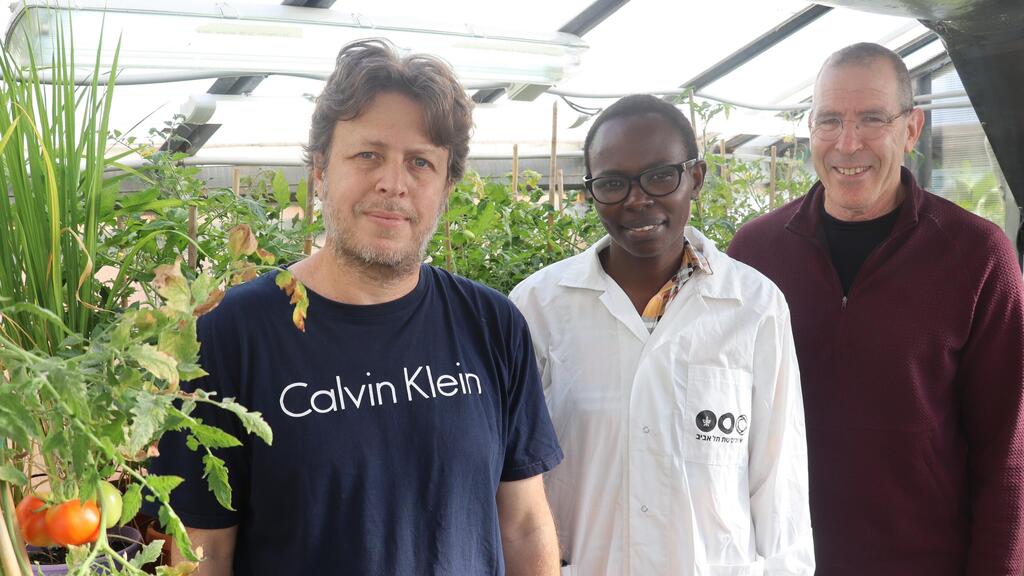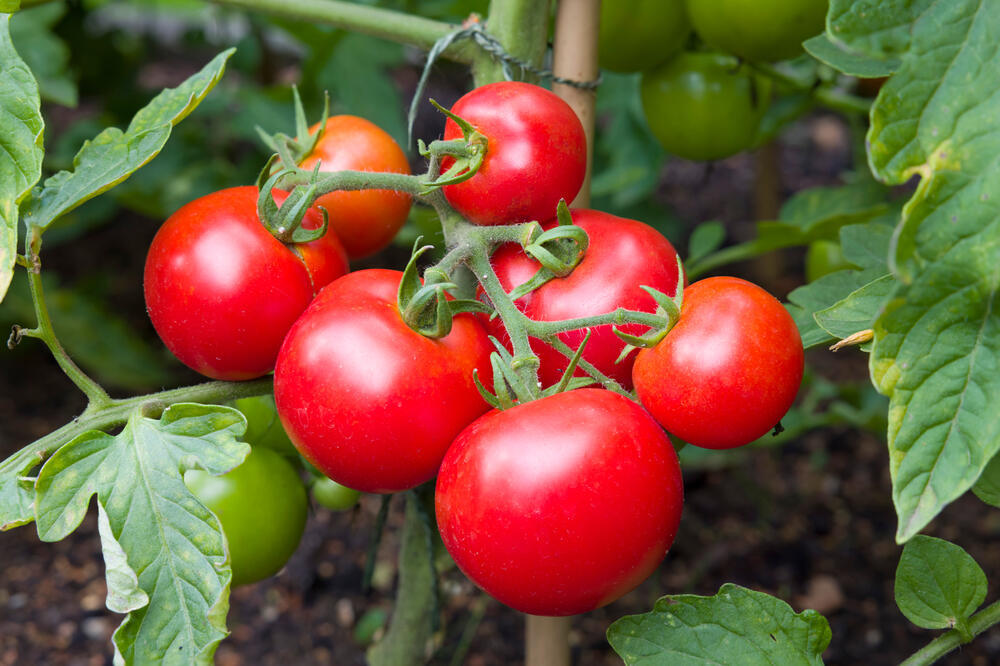Getting your Trinity Audio player ready...
A groundbreaking discovery by researchers at Tel Aviv University has successfully created and characterized tomato varieties with higher water use efficiency without compromising yield. Leveraging CRISPR technology and genetic editing, the researchers developed tomatoes that require less water without affecting yield, quality, or taste.
Read more:
The study, conducted in the lab of Professor Shaul Yalovsky and Dr. Nir Sade, involved a team of researchers from the School of Plant Sciences at Tel Aviv University, including Dr. Mallikarjuna Rao Pulley (formerly a post-doctoral fellow under the guidance of Prof. Shaul Yalovsky), and Fioriti Muchoki, a Ph.D. student under the joint supervision of Yalovsky and Sade. Collaborators from Ben-Gurion University and a researcher from a U.S. institution also contributed to the research, published in the academic journal PNAS.
As global warming accelerates and water sources dwindle, there is an increasing demand for crops that require less water without compromising growth. However, identifying suitable plant strains naturally adapted to low water conditions poses a significant challenge.
Plants undergo the process of transpiration and absorb bicarbonate during photosynthesis through small openings in their leaves called stomata. These stomata, which open and close, regulate the plant's water balance. In drought conditions, the plant closes its stomata, reducing water loss. The challenge lies in the trade-off between water conservation and carbon dioxide absorption, essential for photosynthesis.
2 View gallery


The researchers used CRISPR genetic editing to modify a tomato plant
(Photo: Tel Aviv University)
The researchers addressed this challenge by utilizing CRISPR genetic editing to modify a tomato plant called ROP9. ROP proteins function as switches that can be in an active or inactive state.
"We discovered that when we impair the activity of ROP9 rendering them inactive, it causes partial closure of the stomata, especially during midday when the rate of water loss from plants due to transpiration is highest. In contrast, during mornings and afternoons, when the rate of transpiration is lower, there was no significant difference in water loss between the control plants and those with impaired ROP9," Yalovsky explains.
This genetic modification allowed the modified plants to absorb sufficient bicarbonate even during midday, when stomata were more closed, preventing a decrease in photosynthesis. The findings suggest that targeting specific genetic factors makes it possible to create crops that maintain water use efficiency without compromising growth and productivity.
Yalovsky emphasizes the potential impact of this research in addressing global water scarcity and agricultural challenges. "This discovery opens new possibilities for enhancing crop resilience to water scarcity, ensuring sustainable agriculture in the face of climate change," he explains.


